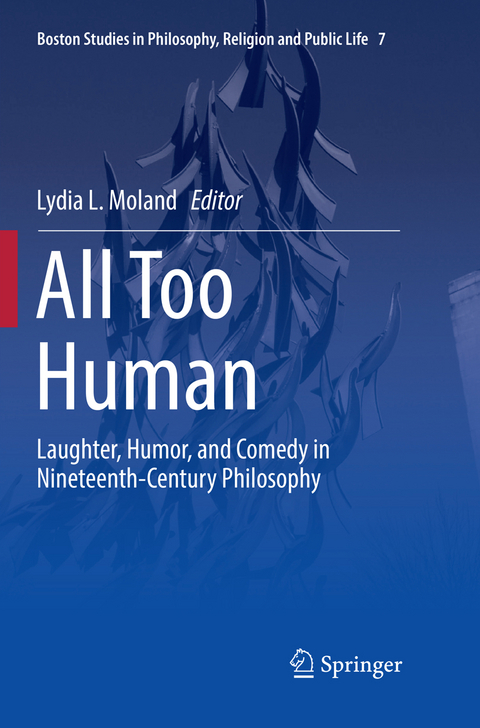
All Too Human
Springer International Publishing (Verlag)
978-3-030-08227-7 (ISBN)
Lydia L. Moland is Associate Professor of Philosophy at Colby College. She is the author of "Hegel on Political Identity: Patriotism, National Identity, Cosmopolitanism" and of numerous articles on Hegel's political philosophy and philosophy of art. She has been a recipient of fellowships from the American Academy of Berlin, the DAAD, the American Council of Learned Societies, and the National Endowment for the Humanities.
Chapter 1. Introduction (Lydia Moland).- Chapter 2. The Ends of Art: Hegel on Comedy and Humor from Aristophanes to Jean Paul (Lydia Moland).- Chapter 3. Schlegel on Humor and Comedy (Katia Hay).- Chapter 4. Jean Paul on Humor (William Coker).- Chapter 5. Caricature, Philosophy and the Aesthetics of the Ugly: Some Questions for Rosenkranz (Allen Speight).- Chapter 6. Humor as Redemption in the Pessimistic Philosophy of Julius Bahnsen (Frederick Beiser).- Chapter 7. Schopenhauer's Incongruity Theory of Humor (Robert Wicks).- Chapter 8. 'What Time Is It?....Eternity': Kierkegaard's Socratic Use of Hegel's Insights on Romantic Humor (Marcia Robinson).- Chapter 9. Jest as Humility: Kierkegaard and the Possibility of Virtue (John Lippitt).- Chapter 10. The Divine Hanswurst: Nietzsche on Laughter and Comedy (Matthew Meyer).- Chapter 11. Bergson's On Laughter (Keith Ansell-Pearson).
| Erscheinungsdatum | 19.02.2019 |
|---|---|
| Reihe/Serie | Boston Studies in Philosophy, Religion and Public Life |
| Zusatzinfo | XI, 198 p. 4 illus. |
| Verlagsort | Cham |
| Sprache | englisch |
| Maße | 155 x 235 mm |
| Gewicht | 332 g |
| Themenwelt | Kunst / Musik / Theater ► Film / TV |
| Geisteswissenschaften ► Philosophie ► Allgemeines / Lexika | |
| Geisteswissenschaften ► Philosophie ► Geschichte der Philosophie | |
| Geisteswissenschaften ► Philosophie ► Philosophie der Neuzeit | |
| Schlagworte | Aesthetic Philosophies of Friedrich Schlegel • Aesthetic Philosophies of Hegel • Aesthetic Philosophies of Kierkegaard • Aesthetic Philosophies of Nietzsche • Aesthetic Philosophies of Schopenhauer • German Idealism • German Romanticism • Philosophy of Comedy • Philosophy of Humor • Philosophy of Laughter |
| ISBN-10 | 3-030-08227-X / 303008227X |
| ISBN-13 | 978-3-030-08227-7 / 9783030082277 |
| Zustand | Neuware |
| Haben Sie eine Frage zum Produkt? |
aus dem Bereich


